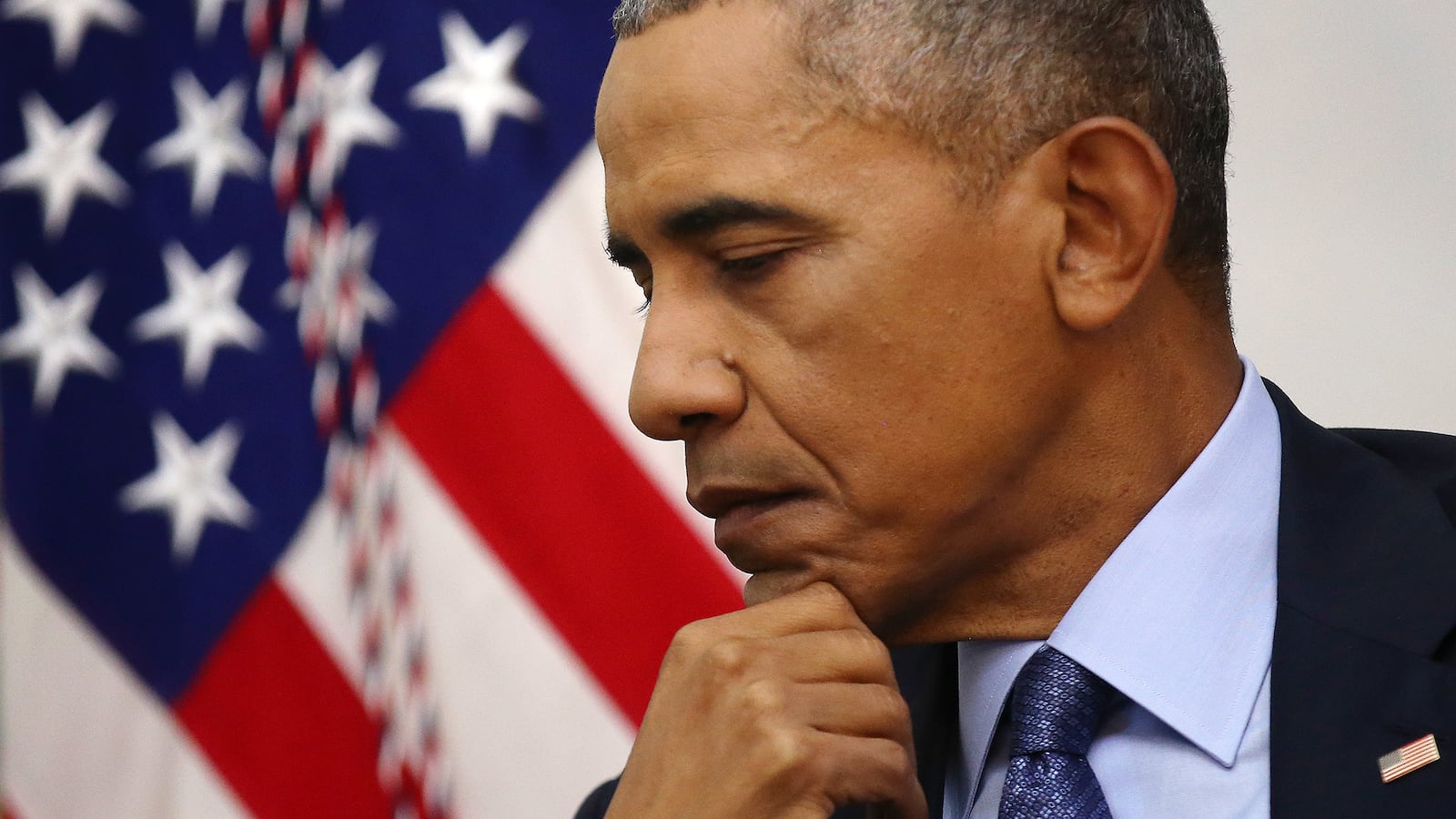As President Obama returns to his adopted hometown Tuesday night for his farewell address, I suspect that he will proudly (and rightfully) proclaim the progress made during his administration. He will likely continue to sound the drum about the inherent dangers of a Trump presidency if left unchecked.
But if he talks just about his legacy, that speech will be something of a failure.
Before he leaves that podium at the McCormick Place convention center, I want him to say something about and to that “other America,” that “other Chicago”—the one that has been locked up and left out of the American Dream. Specifically, I want him to point to that city within the city—the one that lies south and west of downtown, far away from the coast lined with recreational boats, miles from the ultra-exclusive shopping district, tourist traps, and multimillion dollar Gold Coast homes—and make a commitment to neighborhood renewal, to rebuilding broken infrastructures and reforming systems of support.
I want him to say something about the homeless men, women, and children sleeping in the shadow of the grand hall. I want him to say something to the single mother in Englewood, who is late to work every morning because she fears her young daughter won’t make it to school safely on her own. I want him to say something to the young brother, struggling to maintain his balance, get an education, and plant a better future for himself even as the ground rumbles beneath his feet.
And if I can be personal, I want him to say something to one of my closest and dearest friends: a former anesthesiologist at the University of Chicago who was threatened by a pistol-wielding kid as he rode his bicycle to campus. That night, it did not matter that the Chicago native, husband, and father is on first-name basis with a two-term president of the United States.
There are no titles here. Just territory, marked in blocks.
Not unlike war-torn Somalia and its decades-long civil war, parts of Chicago are engulfed in gun violence, ravaged by poverty, and awash in illicit drugs. Many of those neighborhoods, once a beacon of middle-class black wealth and promise, have become synonymous for all that is wrong in America. Weekend shootings, sometimes numbering by the dozen, are so frequent that they rarely make national news. Even the most recent statistics detailing last year’s carnage, released by Chicago police, were met with a collective shrug or, more dangerously, used to marginalize and demonize an entire race of people.
There were 2,900 shootings in 2015—2,900 families marred by gun violence. While economic gains are typically an augur of declines in violent crime, in 2016, the murder rate in the nation’s third largest city climbed 72 percent—even as unemployment fell nationally. For the first time in two decades, there were more than 700 homicides last year.
According to political leaders and law enforcement officials, the carnage is largely contained to the poorest sections of the city where various street gangs rule almost unfettered. They blame the illegal firearms, many flowing in from Indiana and other nearby states where there are few restrictions, and weak federal statutes against straw purchases. Then, too, most of the shootings are committed by repeat offenders with gang affiliations.
The Windy City, as this president well knows, is a place where legends are born and sometimes die. There is an urgency in that. For every black and brown boy and girl, that urgency is present, leering, and unavoidable. The issues are complex and the answers must be swift and comprehensive.
Chicago does not simply need a fresh coat of paint. The requirement is schools that work, an economy that serves and feeds, safety nets that do not work to the detriment of families, environments free of air and waterborne toxins, and a criminal justice system that empowers and partners. As indicated by gun reform issues, the challenges are not all local.
For the record, I do not question the president’s commitment to any of these issues nor do I believe he is any more or less culpable for our social maladies than any other public official—past or present. Barack Obama had not yet been born when Jim Crow’s brothers, cousins, and uncles moved to Chicago and other cities across the nation. The Chicago we know today was born decades ago with housing and employment discrimination, exacerbated by mass incarceration and a so-called war on drugs designed to drain economic potential and political power from whole communities.
So yes, Obama’s farewell address will be elegant, measured, and hopeful.
If his previous speeches are any indication, this one will soar like some of those delivered by Washington, Lincoln, and Kennedy. I do believe, however, that he is uniquely positioned and qualified to step up to the proverbial plate now—to say more and do more. Untethered by the confines of the Oval Office, Barack Obama now has a unique combination of platform and resources, as well as a meaningful opportunity to effect change at home in Chicago and in cities like it across the country.
To date, his public statements have often felt muted, undoubtedly weighed down by the rigors of serving diverse constituencies with sometimes competing interests. He was undoubtedly constrained by the political calculus of the next election—his own or someone else’s.
Somewhere along the line, in the waning days of his presidency, “yes we can” became “here’s what I did.” Tuesday’s speech should be less about saying goodbye to a presidency and much more about a president coming home to say “yes we will” to Chicago.





